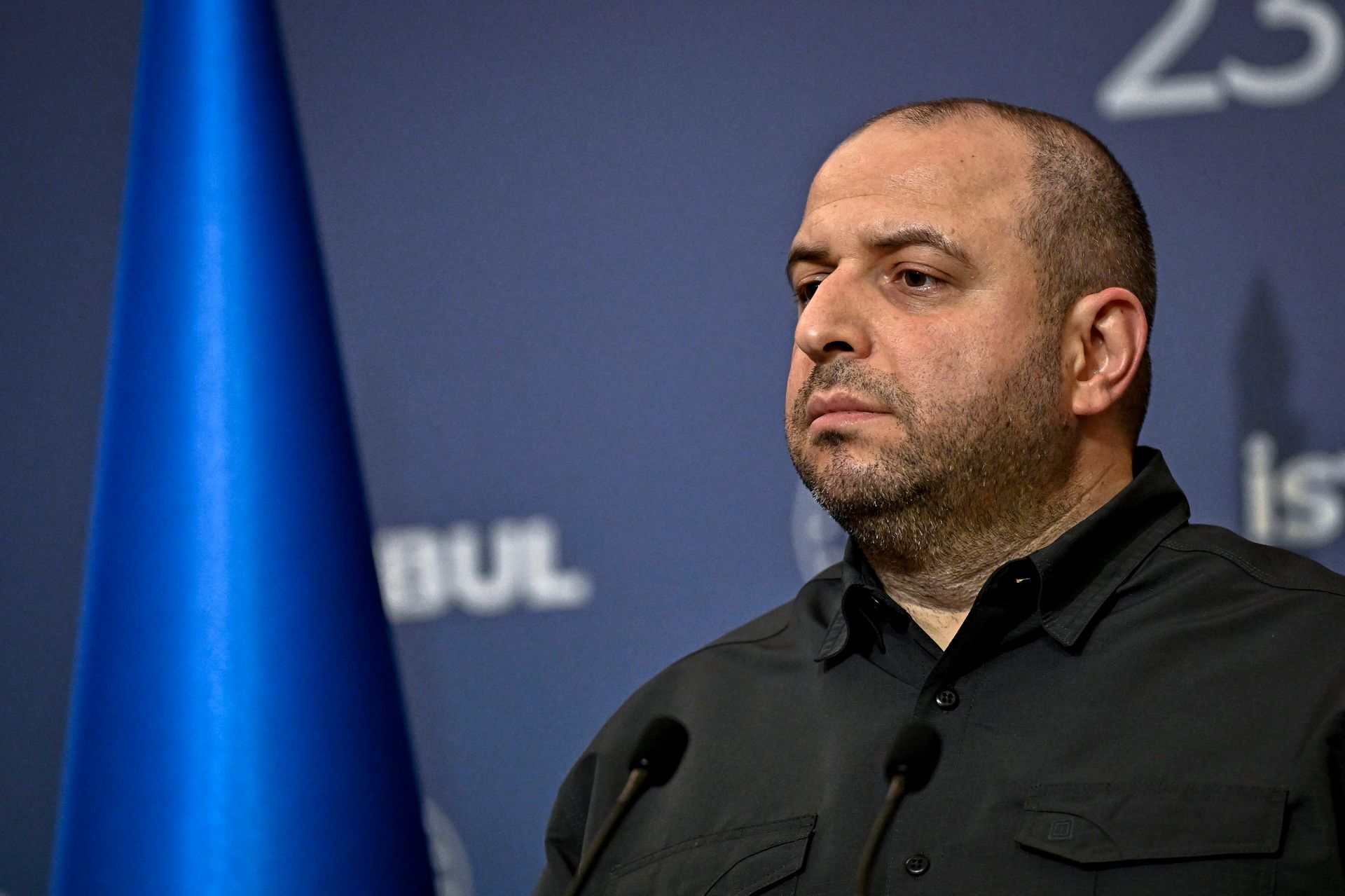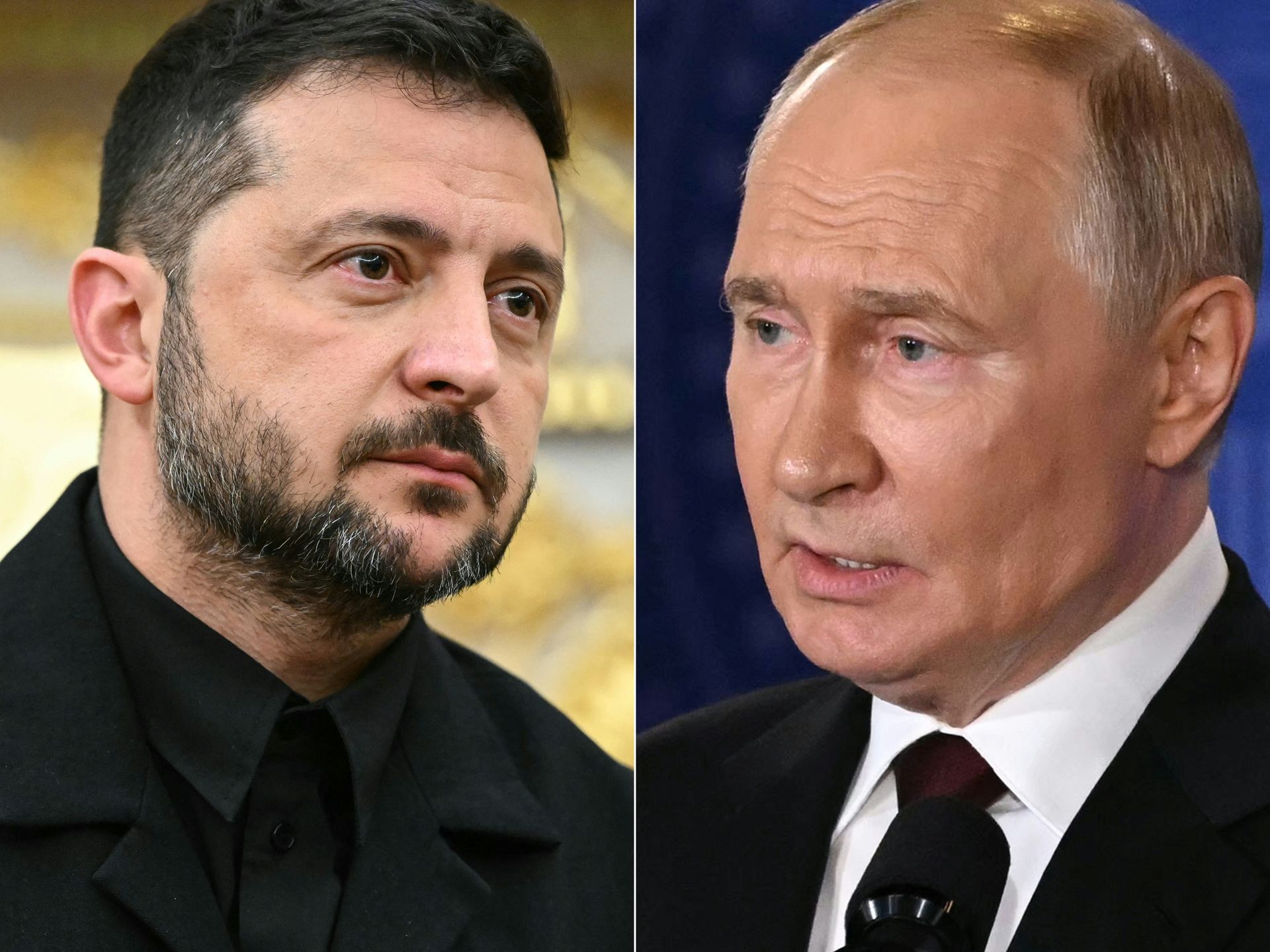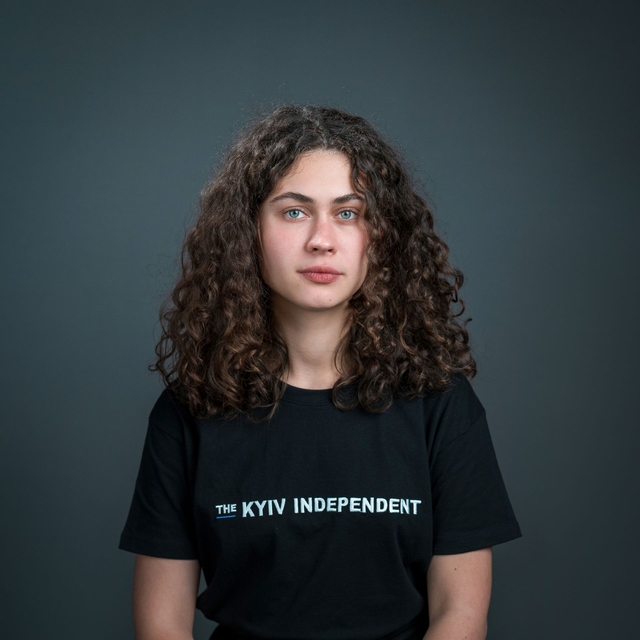New US peace plan pushes Ukraine toward capitulation — here's what we know so far

L: President Volodymyr Zelensky in Strasbourg, France, on June 25, 2025. (Frederick Florin / AFP via Getty Images) R: U.S. President Donald Trump in Washington, D.C., on Nov. 18, 2025. (Win McNamee / Getty Images / Collage by the Kyiv Independent)
- Ukrainian officials say the plan closely mirrors Russia's maximalist demands and revives previously dropped concessions.
- The framework calls for Ukraine to cede Donbas, halve its military, suspend NATO ambitions, and grant certain political concessions to Russia.
- Kyiv and European partners were largely excluded from drafting the plan, though President Volodymyr Zelensky has received the draft.
- A senior U.S. official said some reported elements could still change.
- The negotiations are being treated as urgent due to Ukraine's energy situation.
- Ukrainian officials and lawmakers describe the proposal as unrealistic and dangerous, warning it could harm civilians and embolden Russia.
The United States is advancing a new peace proposal for ending Russia's war against Ukraine, a plan that Ukrainian officials say mirrors Moscow's maximalist demands and revives concessions the Kremlin had previously dropped.
The framework, approved by U.S. President Donald Trump earlier this week, includes requirements for Ukraine to cede territory, cut its military, and limit its alliances — proposals far more sweeping than those discussed in earlier negotiation rounds.
Ukraine's President's Office confirmed that President Volodymyr Zelensky has officially received "a draft plan which, according to the American side, could revitalize diplomacy."
The office added that in the coming days, Zelensky plans to discuss the available diplomatic options and the key elements needed to achieve peace with Trump.
A source in Ukraine's President's Office told the Kyiv Independent earlier that a new peace plan is being crafted by U.S. Special Envoy Steve Witkoff, who's been in contact with Kirill Dmitriev, Russia's top economic negotiator and a longtime backchannel operative in Moscow's outreach to Washington.
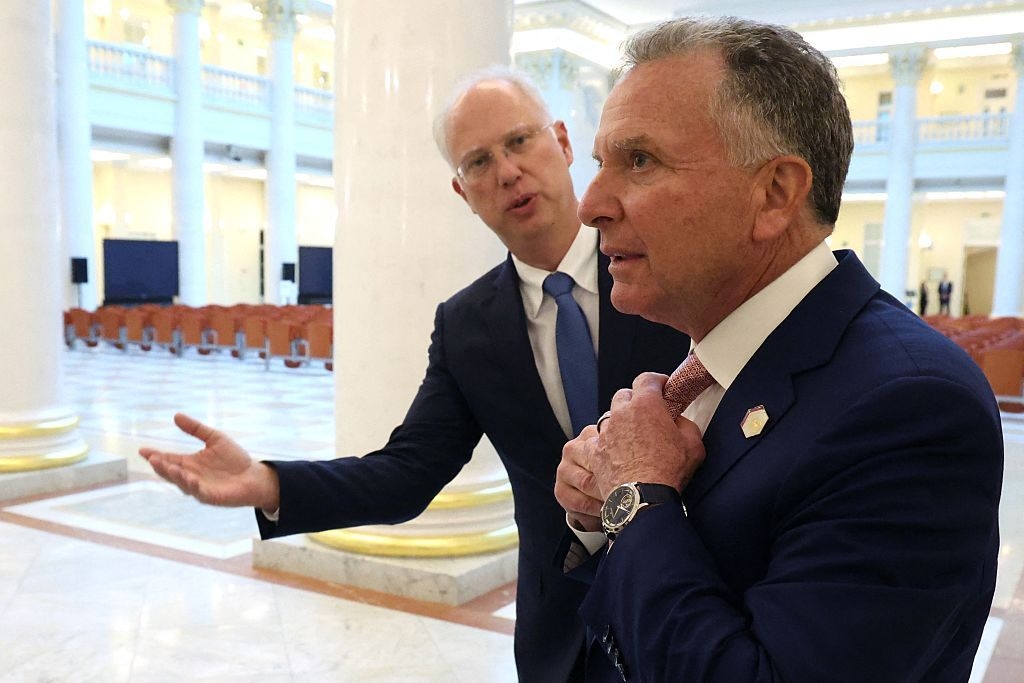
A senior U.S. official told the Kyiv Independent that Trump has been briefed on the proposal and backs it, saying Witkoff has spent the past month quietly shaping the plan.
The envoy has been gathering feedback from both Kyiv and Moscow on what terms each side might consider acceptable to end the war, the official added.
The Kyiv Independent has learned from multiple sources that European partners were not involved in drafting the U.S. plan, and Ukraine itself was excluded from the process.
After his meeting with U.S. Army Secretary Dan Driscoll, who is visiting Kyiv, Zelensky said teams from Ukraine and the U.S. will work on points of the plan to end the war.
"We are ready for constructive, honest, and efficient work," he added.
The Kyiv Independent has learned that the military-led delegation, after speaking with top Ukrainian officials, will report their findings to the White House. The delegation is expected to travel to Moscow to hold talks with Russian officials.
U.S. Col. Dave Butler told journalists in Kyiv that Ukraine has agreed to an "aggressive" timeline for signing the peace deal, describing the proposal as "a comprehensive plan."
U.S. Chargé d'Affaires to Ukraine Julie S. Davis said that over the past 36 hours, she has witnessed an "extraordinary pace of diplomatic activity," describing it as the most ambitious she has seen in her 30-year diplomatic career.
The Kyiv Independent has learned from a senior U.S. official that the negotiations are being treated as urgent due to Ukraine's worsening energy situation.
The plan calls for Ukraine to surrender the entire eastern Donbas region — comprising Donetsk and Luhansk oblasts — including unoccupied areas, to create a demilitarized zone, according to the Wall Street Journal.
While Russia has occupied all but a few villages in Luhansk Oblast, Ukrainian forces continue to hold parts of Donetsk Oblast, including the key cities of Pokrovsk, Sloviansk, and Kramatorsk.
Ukrainian leaders have earlier refused to cede unoccupied territory under any circumstances. Yet Russian President Vladimir Putin is again attempting to extract politically what he has failed to secure militarily.
Olena Hubanova, co-head of the nonprofit Helping to Leave, which works to evacuate and reintegrate Ukrainians displaced by war, told the Kyiv Independent that the plan ignores the needs of people who may find themselves under Russian occupation.
Many residents, she said, remain in their homes despite attacks because they cannot imagine life anywhere else. Hubanova warned that forcing Ukraine to abandon territories would leave civilians facing an impossible choice.
"We would be giving them over to enemy or telling them to leave for nowhere, without money or support," she said. "Ukraine is not just territory. Ukraine is people."
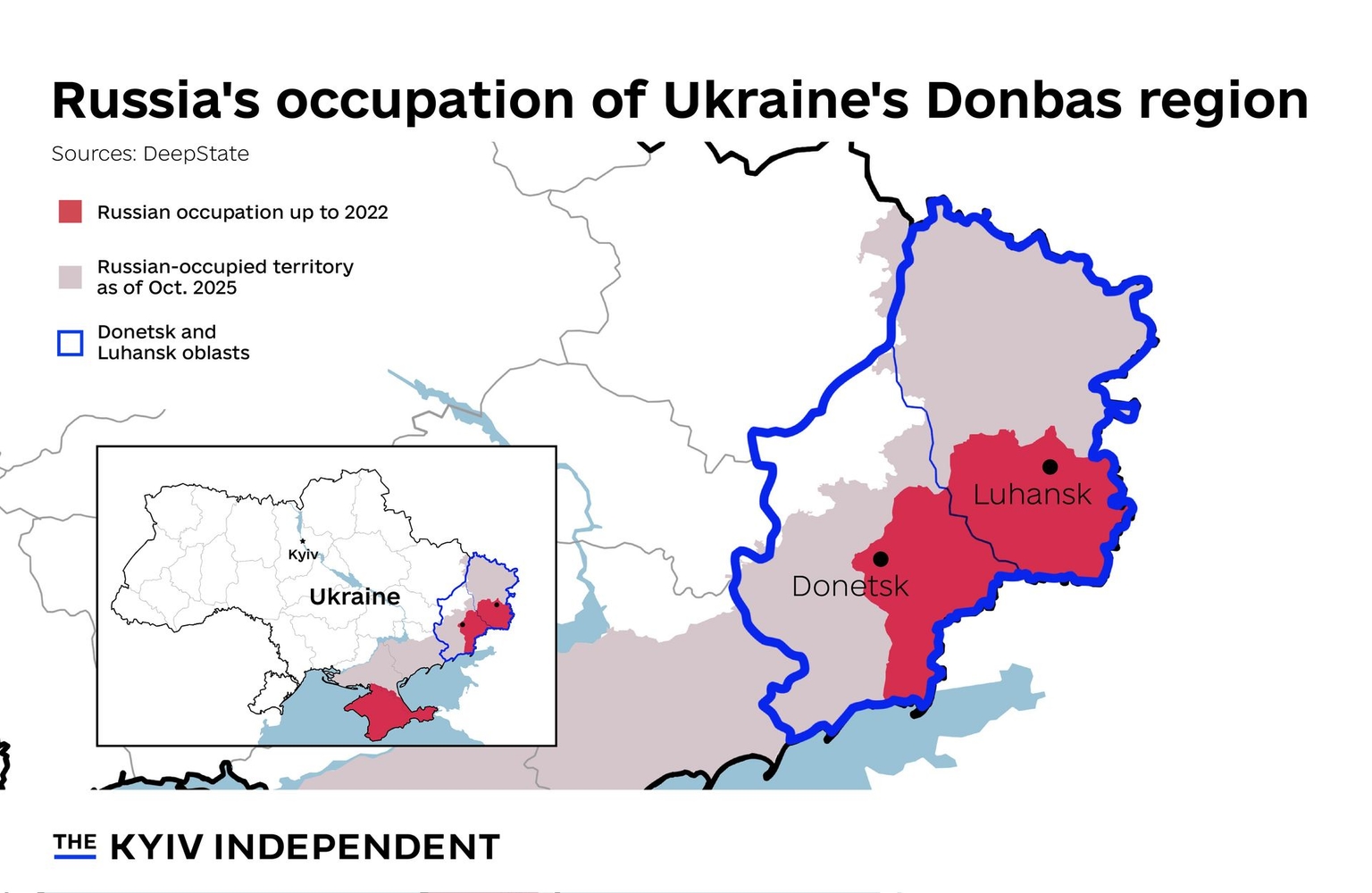
The plan would also require Kyiv to cut its military in half, forgo certain weapons systems, bar foreign troops from serving as ceasefire peacekeepers, and suspend Ukraine's push for NATO membership for years.
In exchange, U.S. officials told the outlet that Moscow would commit to not attacking Ukraine or other European countries and enshrine that pledge in Russian law.
Putin has a history of bending Russia's legal framework — first by exceeding the two-term presidential limit, then extending terms to six years, and ultimately rewriting the Constitution — showing why codifying such a pledge may not guarantee compliance.
The deal also includes what the Telegraph describes as a "rental fee" arrangement in which Russia would make payments for the for de facto control over Donbas territory while legal ownership remained with Kyiv.
A senior U.S. official told the Kyiv Independent that "you can't believe everything you read in the press," a comment that casts doubt on whether some of the reported conditions are actually in the U.S. peace proposal.
Oleksandr Merezhko, head of the Ukrainian parliament's foreign affairs committee, told the Kyiv Independent that the idea is completely detached from reality.
The proposal is "absolutely senseless," he said, not only because Kyiv sees it as entirely unacceptable, but also because it makes no strategic sense for the Kremlin.
"It's hard to imagine Putin agreeing to this — why would he, if he has already written these territories into his constitution?" Merezhko said, adding that the reporting looks less like a serious proposal and more like "a provocation from Putin's side."
"They want a quick peace at the expense of one side, which they consider weaker."
"Perhaps he is using Dmitriev and Witkoff to stir up tensions inside Ukraine, to confuse our allies and Ukraine itself, and to buy time in order to avoid (new) Trump sanctions," he said. "That may be what's behind all of this."
The broader plan also reportedly includes U.S. and international recognition of Russian rule over Crimea and Donbas — although Ukraine itself would not be required to recognize these territories as Russian.
Kyiv would also be obliged to recognize Russian as an official language and remove restrictions on the Russian Orthodox Church, an organization seen as closely linked to the Russian state and supportive of the war against Ukraine.
A source in the President's Office earlier told the Kyiv Independent that they were decidedly unenthusiastic about the potential plan, noting that Washington seems to be moving toward a framework aligned with Moscow's demands.
A U.S. official also told the Kyiv Independent that Russia is expected to make concessions as part of the proposal, though they did not specify what those might entail.

Another Kyiv Independent source familiar with the matter said the Kremlin hardened its positions, sensing Ukraine's worsening battlefield situation and exploiting a major corruption scandal involving individuals close to President Volodymyr Zelensky.
Ukrainian lawmaker Yaroslav Yurchyshyn compared the U.S. approach to the concessions forced upon Czechoslovakia in 1938, arguing Washington is pressuring the victim of aggression to accept territorial losses in exchange for "illusory security guarantees."
"They want a quick peace at the expense of one side, which they consider weaker," he told the Kyiv Independent. "Putin will taste blood on his lips and will twist arms. Therefore, he will likely even intensify his demands, taking advantage of the moment."
He added that Zelensky needs to take decisive action to unify the country, noting that this would require "very mature steps," which, he said, have not yet been taken.
Following a trip to Turkey, Zelensky wrote on X that "only President Trump and the U.S. have sufficient strength for the war to finally end," emphasizing that Ukraine has supported "every strong and fair proposal" capable of producing results.
Europe signaled growing unease with the emerging U.S. plan. EU foreign policy chief, Kaja Kallas, said any attempt to end the war must involve Ukraine and Europe directly.
"We have not heard of any concessions on the Russian side. If Russia really wanted peace, it could have agreed to an unconditional ceasefire already some time ago," she said.
Despite the renewed diplomatic efforts, Kyiv's core position remains firm: backed by European allies, Ukraine continues to insist on a ceasefire along the existing front line.
White House Press Secretary Karoline Leavitt told the Kyiv Independent that Trump remains determined to end the war and "has grown frustrated with both sides" for refusing to commit to a peace deal.
"The President (Trump) and his team never give up, and the United States has been working on a detailed and acceptable plan for both sides to stop the killing and create a durable, lasting peace," she added.
When asked about the diplomatic activity, Kremlin spokesperson Dmitry Peskov said on Nov. 20 that Moscow remains in contact with Washington but denied that any negotiations or consultations are underway.
"No such consultations are currently taking place," he said. "There are certainly contacts, but there is no process that could be called consultations. It is not happening."

